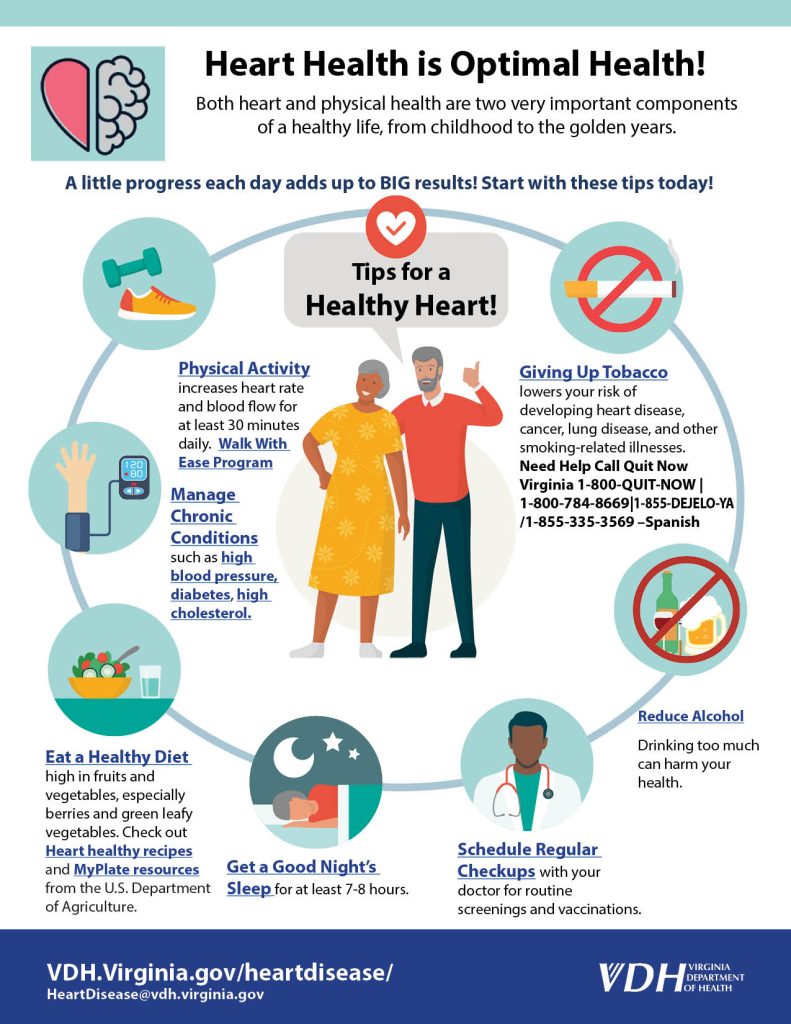Revolutionizing Heart Health: 15 Proven Strategies to Prevent Heart Disease at 50 and Beyond

As we age, our risk of developing heart disease increases, but that doesn’t mean we’re doomed to a life of medical woes. The good news is that by incorporating simple, yet powerful strategies into our daily lives, we can significantly reduce our risk of heart disease, even in our 50s and beyond. Here are 15 proven ways to revolutionize your heart health and live a longer, healthier life.
-
Get Moving, Stay Grooving: Regular exercise is a no-brainer when it comes to heart health. Aim for at least 150 minutes of moderate-intensity aerobic exercise, or 75 minutes of vigorous-intensity aerobic exercise, or a combination of both each week. As we age, our bodies naturally lose muscle mass, so incorporating strength training exercises into your routine can help maintain muscle mass and boost metabolism.
-
Eat to Beat Heart Disease: Focus on consuming a variety of fruits, vegetables, whole grains, lean proteins, and low-fat dairy products. A heart-healthy diet should limit unhealthy fats, added sugars, and refined carbohydrates. Consider incorporating the Mediterranean diet, which has been shown to have numerous heart health benefits.
-
Quitting is Winning: If you’re a smoker, quitting is one of the best things you can do for your heart health. According to the American Heart Association, quitting smoking can reduce your risk of heart disease by up to 50% within five years.
-
Stress Less: Chronic stress can have a significant impact on our heart health, so it’s essential to find healthy ways to manage stress. Try techniques like meditation, yoga, or deep breathing exercises to help keep your stress levels under control.
-
Sleep Your Way to Better Heart Health: Poor sleep has been linked to an increased risk of heart disease, so it’s essential to get enough shut-eye. Aim for 7-8 hours of sleep each night and establish a consistent sleep routine to help regulate your body’s internal clock.
-
Monitor Your Blood Pressure: High blood pressure is a significant risk factor for heart disease, so it’s essential to monitor your blood pressure regularly. If you’re diagnosed with high blood pressure, work with your healthcare provider to develop a plan to get it under control.
-
Get Your Cholesterol Checked: High levels of low-density lipoprotein (LDL) cholesterol can increase your risk of heart disease. Regular cholesterol checks can help identify any issues early on, allowing you to make lifestyle changes or start medication if necessary.
-
Limit Your Sodium Intake: Consuming too much sodium can increase blood pressure, so it’s essential to limit your intake. Aim for no more than 2,300 milligrams of sodium each day, and consider reducing your intake further if you’re at risk of high blood pressure.
-
Incorporate Omega-3 Rich Foods: Omega-3 fatty acids have been shown to have numerous heart health benefits, including reducing inflammation and improving blood lipid profiles. Fatty fish like salmon, tuna, and mackerel are all high in omega-3s.






